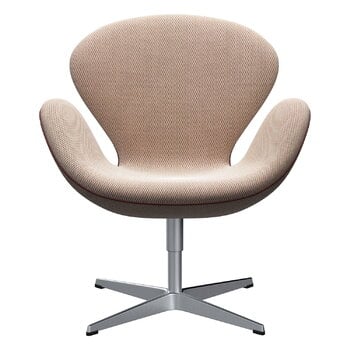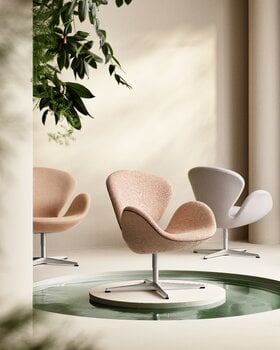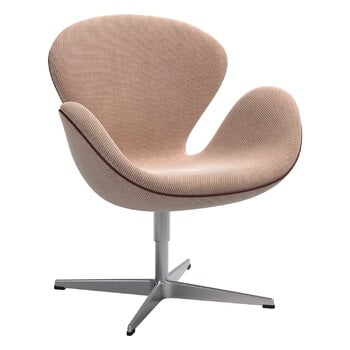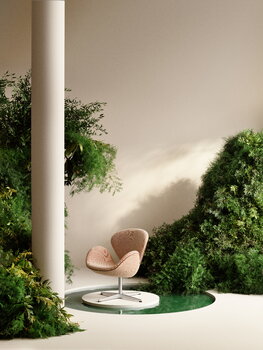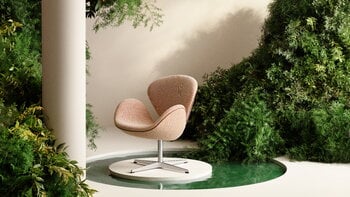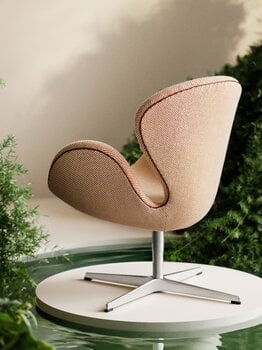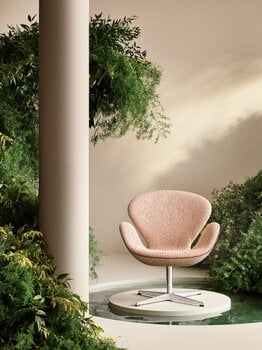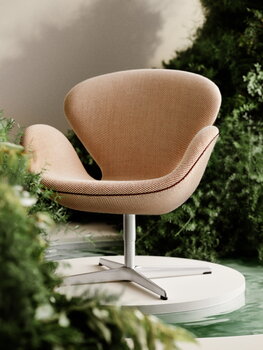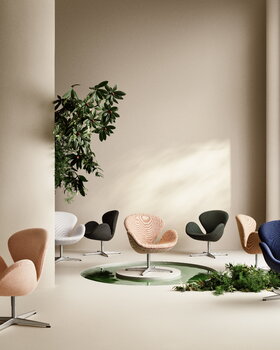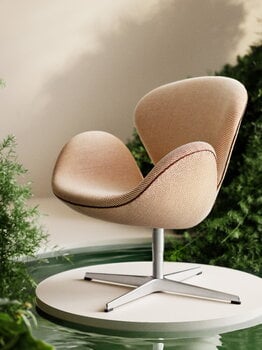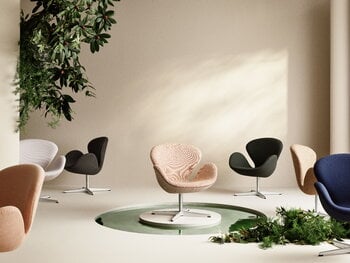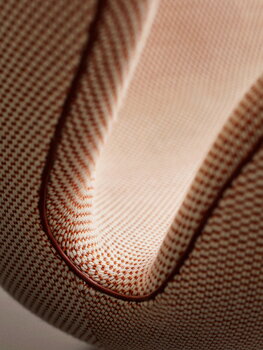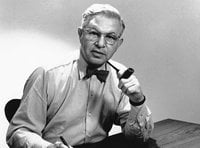Fritz Hansen's Swan 3320 lounge chair will charm both those who see it and those who sit on it. Originally designed by Danish designer Arne Jacobsen for the lobby and lounge of the SAS Royal Hotel in Copenhagen, this iconic recliner's charm lies in its gentle, friendly design – featuring no straight lines at all. Back in the 1950s, the Swan lounge chair was a technological wonder, with its curvy form breaking away from the straight and simple lines of traditional armchairs.
The Swan armchair's soft design not only offers an inviting appearance but also ensures exceptional ergonomic comfort, making it a pleasure to relax in its embrace. Whether placed in a living room or a hotel lobby, the luxurious wool upholstery adds a touch of Nordic sophistication to any environment. Upholstered in Kvadrat's special Serpentine wool fabric and finished with leather details, this special lounge chair is only available in 2024.
